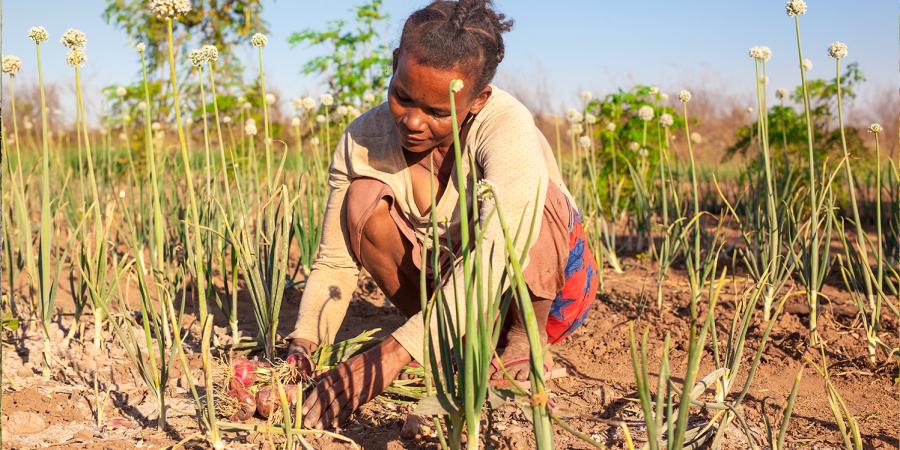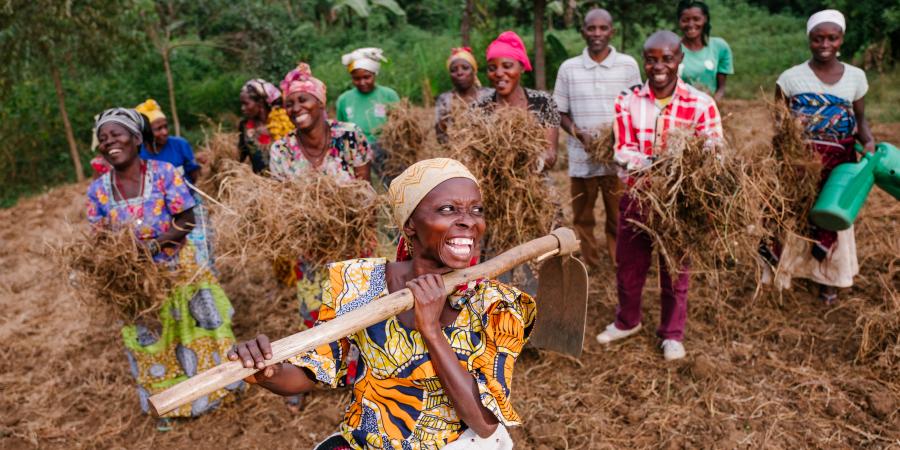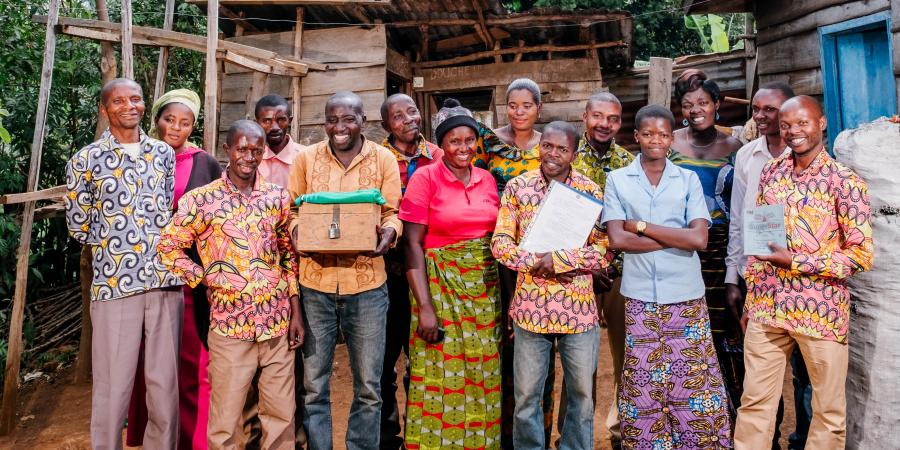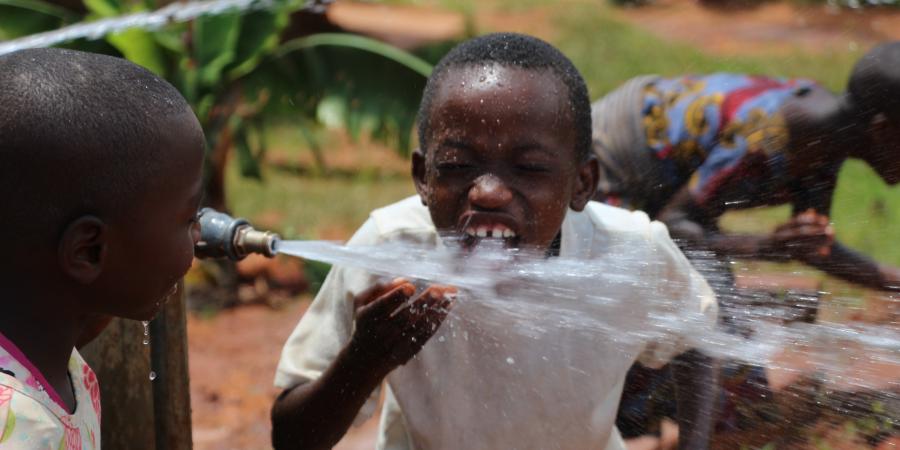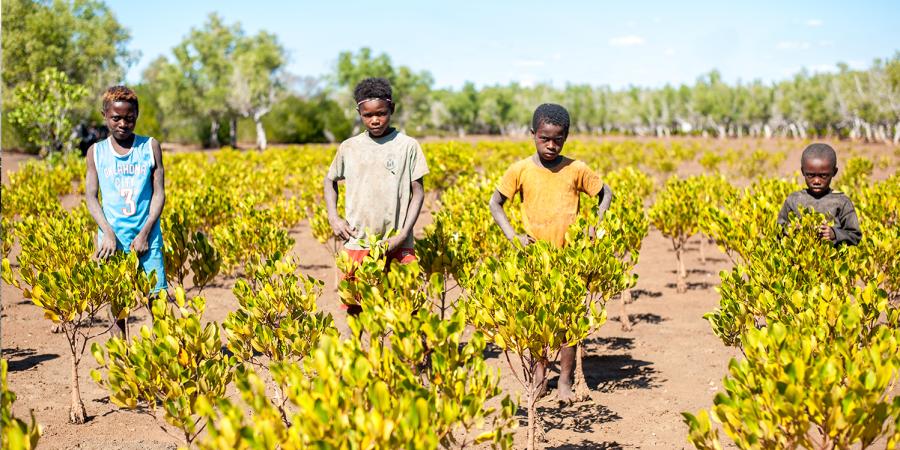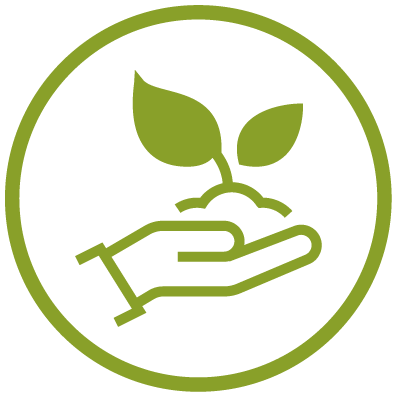
Sustainable Food Systems
Working towards sustainable agricultural and food systems
Louvain Coopération works towards sustainable food systems that guarantee food and nutritional security while preserving ecosystems and resilience to climate change.
These systems encompass all actors and activities related to the production, processing, distribution, preparation and consumption of food, including socio-economic activities and the resulting environmental impacts.
Louvain Coopération identifies levers for change at each stage of the value chain in order to strengthen local dynamics, encourage sustainable and fair agricultural practices, and promote healthy and accessible food for all.
Value chains, agroecology, natural resources
The development of sustainable food systems requires taking into account a whole range of factors, activities and actors. Our work focuses on several of these factors:
- Transition to agroecology
- Protection of natural resources and enhancement of ecosystem services
- Sustainable development of value chains
- Improvement of livelihoods
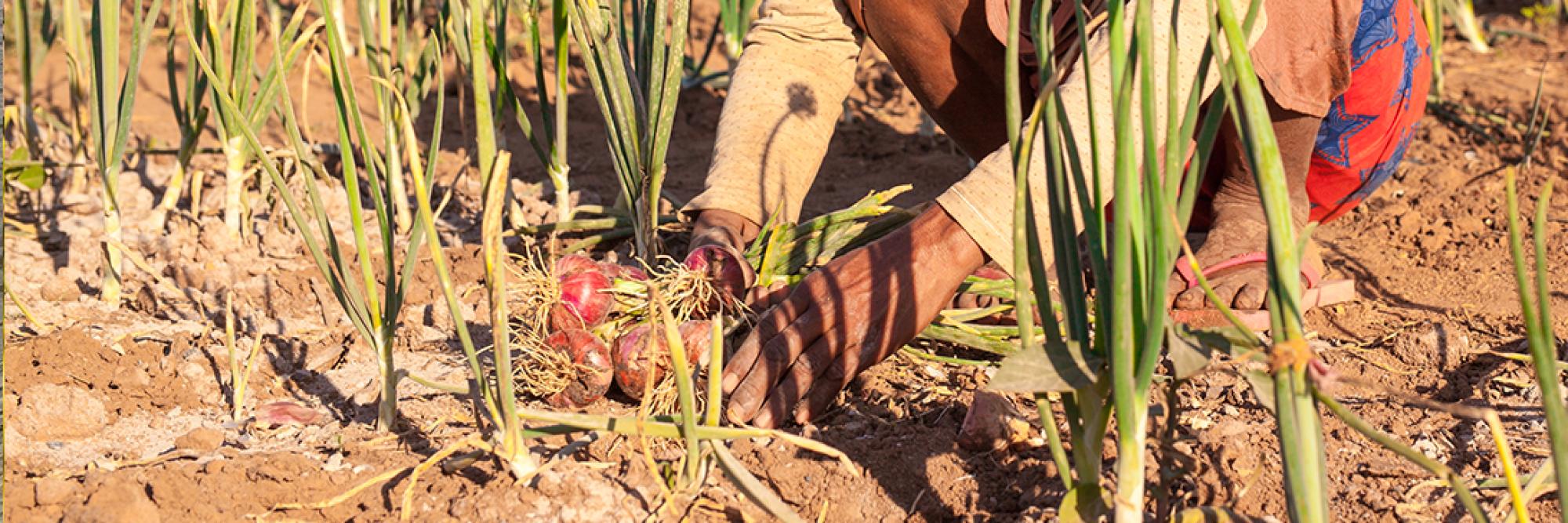
Madagascar
Our aim is to develop sustainable and equitable food and farming systems through an integrated approach combining ecological and social principles to optimise interactions between plants, animals, people and the environment.
To achieve this, we work with our local partners to improve community resilience and local autonomy. This involves technical training in production methods that respect the principles of agroecology. Producers are given support and advice on managing their farms, processing and preserving agricultural produce and developing commercial channels. Access to inputs is facilitated, with a view to diversifying agricultural products. We also support agroforestry and reforestation, and work with families to develop small-scale economic activities to improve their incomes.
We are also working to build the capacity of local actors. This involves structuring and networking professional agricultural organisations, helping them to set up and manage common assets and funds, and building their technical, management and governance skills. We also support their representation at regional and national level.
Finally, we support the sustainable management of natural resources and the conservation of ecosystems, by raising farmers' awareness of the use of the Environmental Integration Tool (EIT), as well as raising community awareness of the impact of climate change.
Partners : F3M, CoopAgri, FIDEV, DRAE (Direction régionale de l’agriculture et de l’élevage) et DRICC (Direction régionale de l’industrie et du commerce).
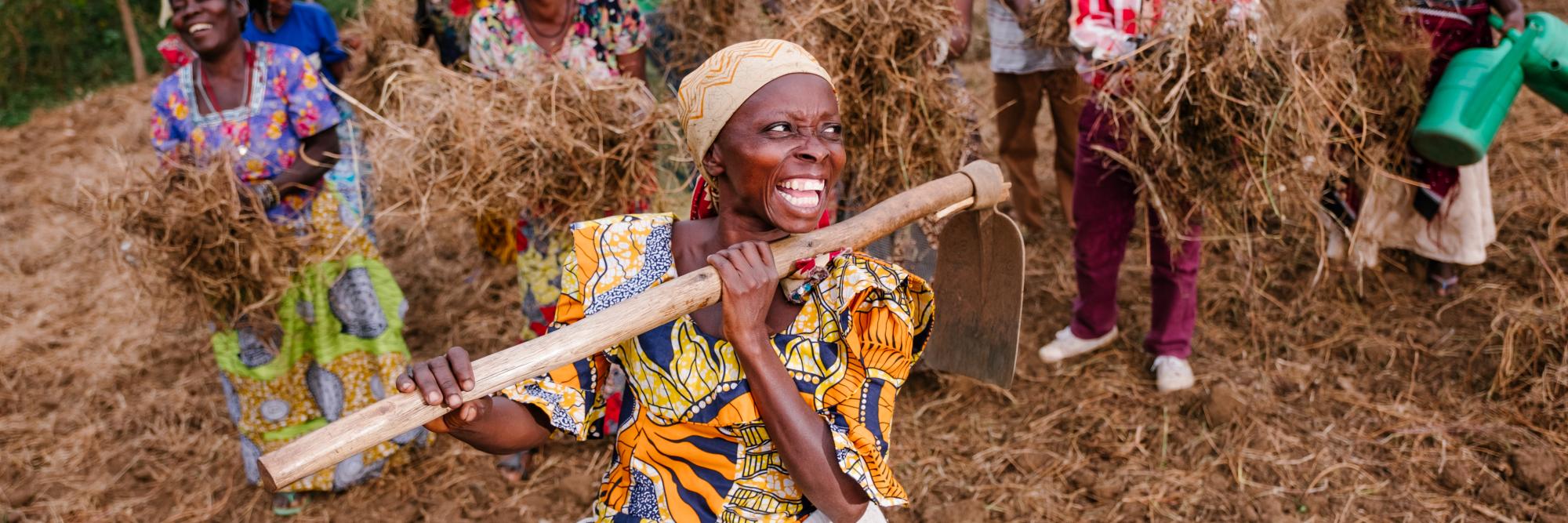
RDC
Our goal: Increase coverage of the basic socio-economic needs of local populations by improving their incomes, while managing ecosystems and agro-ecosystems sustainably and inclusively.
To achieve this, together with our local partners, we take part in research and promote agricultural innovations to solve problems linked to the activities of the beneficiaries. We experiment with and adapt the most relevant profitable and sustainable agro-ecological practices to their contexts.
We support the conservation of ecosystems and agro-ecosystems, in particular by supporting the development of agro-ecological principles in production activities, but also by promoting techniques for protecting and conserving soil and biodiversity. To the same end, we support agroforestry and reforestation initiatives.
We teach farmers to use the Environmental Integration Tool (EIT) producer and to respect the commitments they have made.
Partners : ASOP
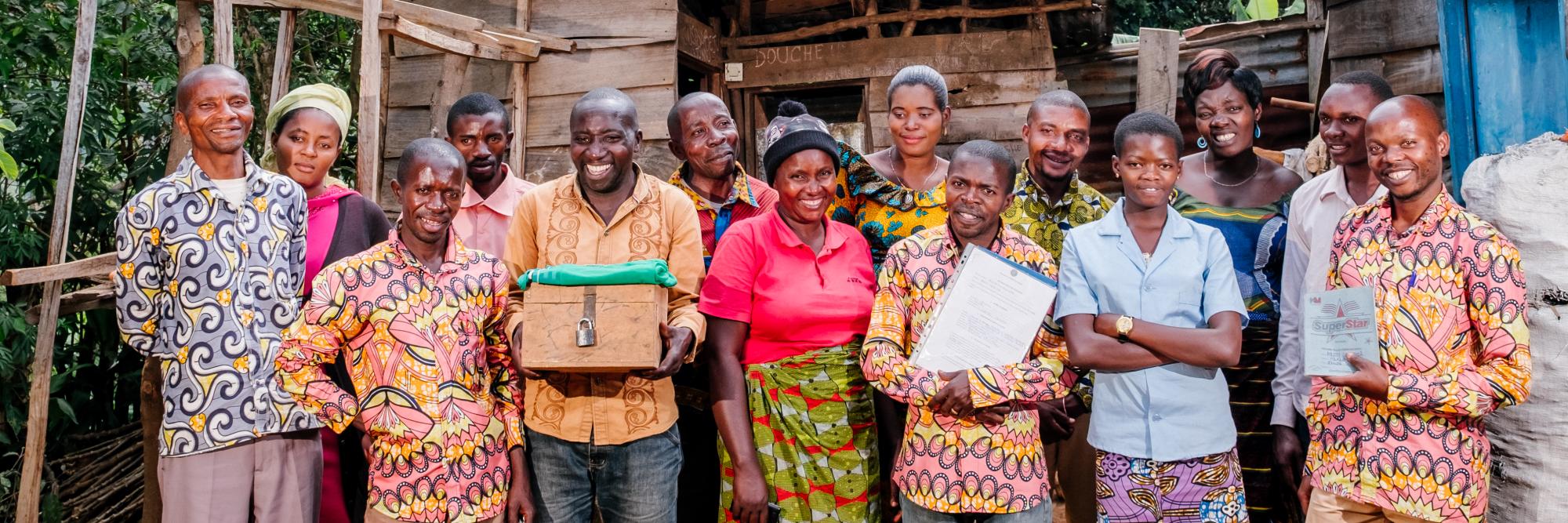
RDC
Our goal: Support the implementation of relevant and effective actions by civil society organisations (CSOs) by facilitating local initiatives in the fields of governance, peace and security, human development and sustainable development.
To achieve this, we work with our local partners to support local CSOs by funding projects in rural and peri-urban areas.
We are developing local support for local CSOs, in particular through a national Local Initiatives Support Office (GAL) and a pool of local consultants.
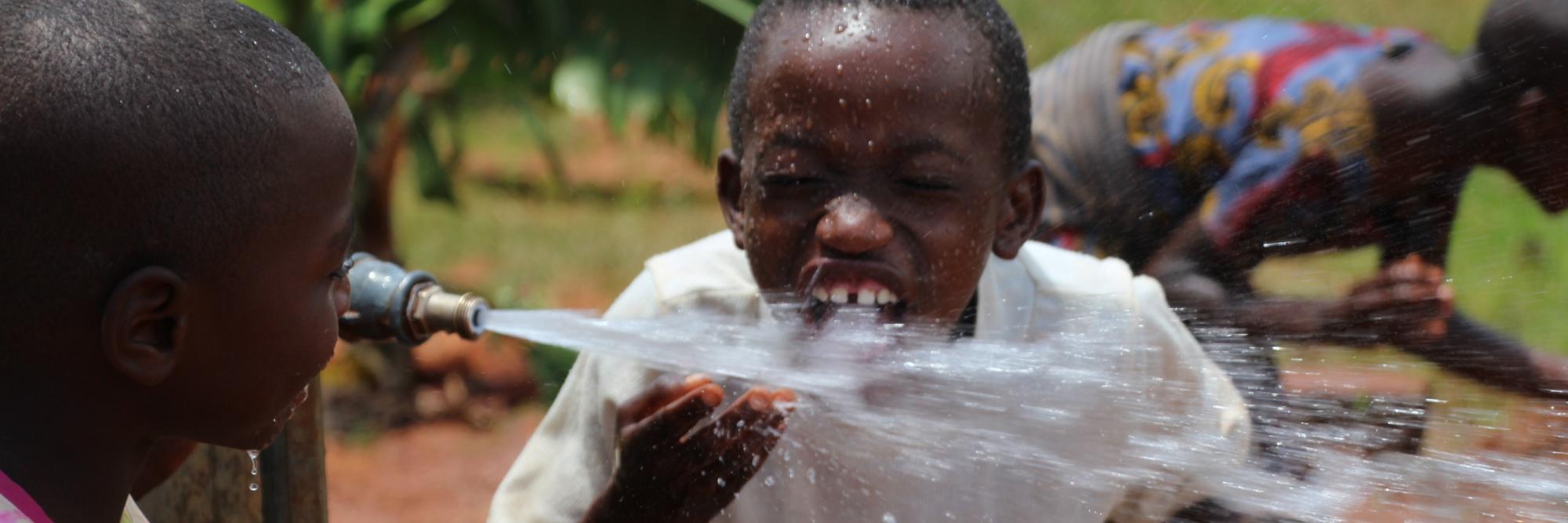
Burundi
Our aim is to strengthen the participation of civil society organisations (CSOs) in improving policies, managing natural resources and biodiversity sustainably and promoting good practice among the population.
To achieve this, we are working with our local partners to strengthen and structure CSOs active in environmental protection and conservation. These organisations are being identified and strengthened to develop a strong network. Their skills are developed and multi-stakeholder dialogue forums are created.
In addition, micro-projects led by these CSOs and designed to protect natural resources and biodiversity, the local environment and sanitation are financed. These projects include, for example, the protection of natural areas, the promotion of measures to combat erosion (reforestation, agroforestry, improved stoves, etc.), hygiene and sanitation in households and/or communities, and the treatment and recycling of solid waste.
Finally, awareness-raising initiatives are being carried out to encourage local people to adopt practices that promote biodiversity and protect natural resources, the local environment and sanitation.
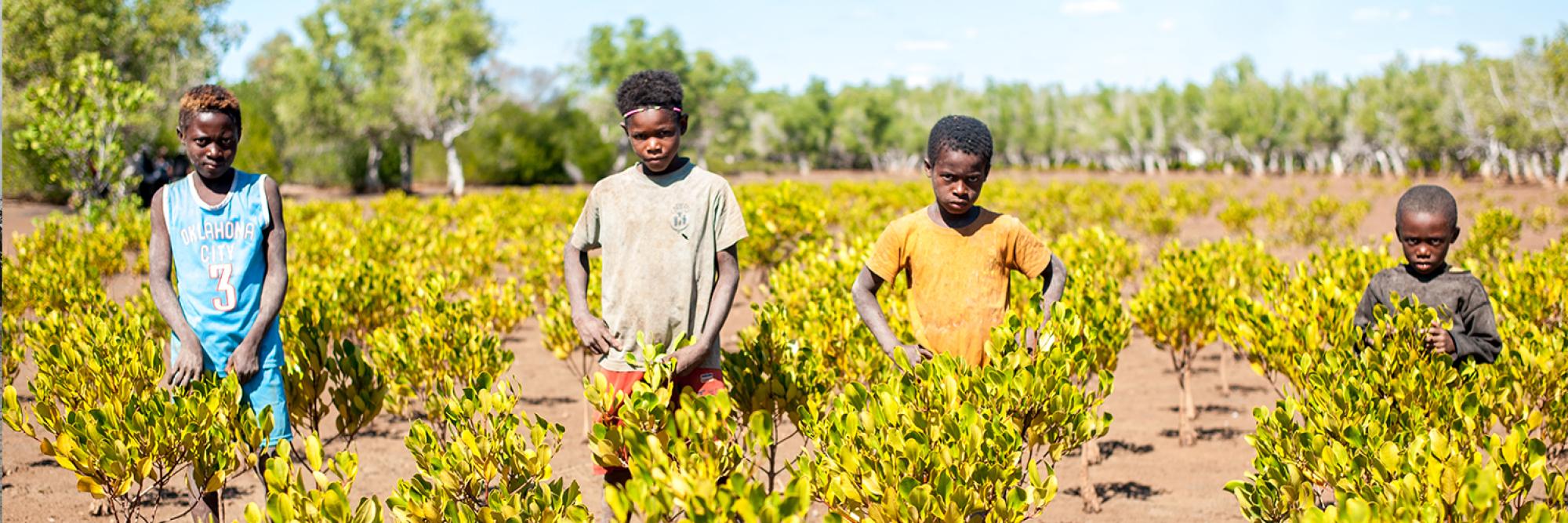
Madagascar
Our aim is to ensure the sustainable management of natural resources, particularly mangrove areas, by working to protect biodiversity, safeguard ecosystem services and promote socio-ecological resilience, with the involvement of local authorities and communities. A great deal of thought is being given to this issue within our consortium of university NGOs, Uni4Coop.
To achieve this, together with our local partners, we are working to improve the governance of mangrove areas, through advocacy in favour of these ecosystems, as well as raising local awareness of regulations.
To strengthen shared knowledge in this area, awareness-raising campaigns on ecosystem development and management plans and environmental education in schools are being set up. We also organise consultation and knowledge-sharing sessions on the proper management of ecosystems. Access to this knowledge requires the ability to read and write. Functional literacy and consciousness-raising courses are therefore offered to adults who have not had the chance to go to school.
To encourage the sustainable use of mangroves, we are working to improve the incomes and living conditions of the people living in these areas. This involves supporting sustainable economic activities that do not destroy the ecosystem, setting up and developing group savings schemes, and supporting fishermen's cooperatives. We also organise exchange visits on mangroves and open days in these areas.
Finally, to encourage the conservation and restoration of mangrove areas, we have set up a "green fund" to support local initiatives. We are also distributing a toolkit of best practices and promoting an economic model that reconciles exploitation and conservation.
Partners : FIVOI, FIAME, OPCI Alokaina, FIDEV, ALEFA MENABE, DRPEB (Direction régionale de la Pêche et de l’Economie bleue) et DREDD (Direction régionale de l’Environnement et du Développement Durable).
Burundi
Our aim is to facilitate access to quality healthcare for rural and informal sector populations by developing the mutual movement at community, regional and national levels.
To achieve this, we work with our local partners to support community health mutuals. This involves support for the governance and structuring of 7 mutual health organisations in the north of the country, as well as support for the health sector to improve the quality of care for mutual members. The national and regional federations, which lead and support the mutual movement and contribute to the process of setting up mutual associations in health districts, have also been strengthened.
In addition, we are carrying out community awareness campaigns. The aim is to promote mutual health insurance to encourage families and groups (social economy initiatives) to join. Mutual health insurance schemes are also used to inform women about sexually transmitted diseases, and to run mass screening campaigns for breast and cervical cancer.
Partner : UCODE-AMR

